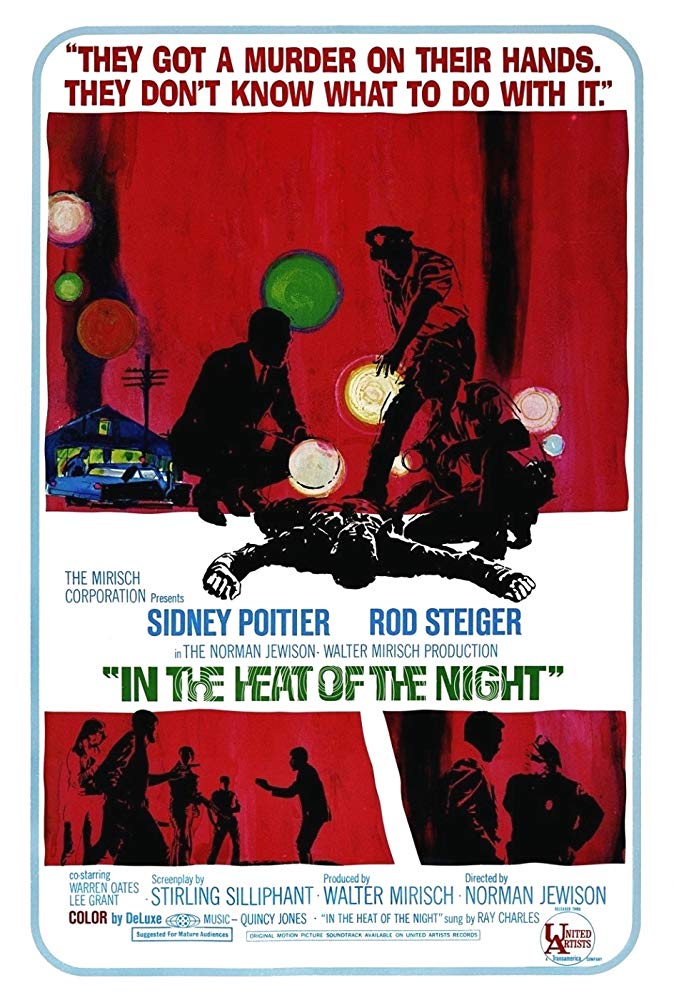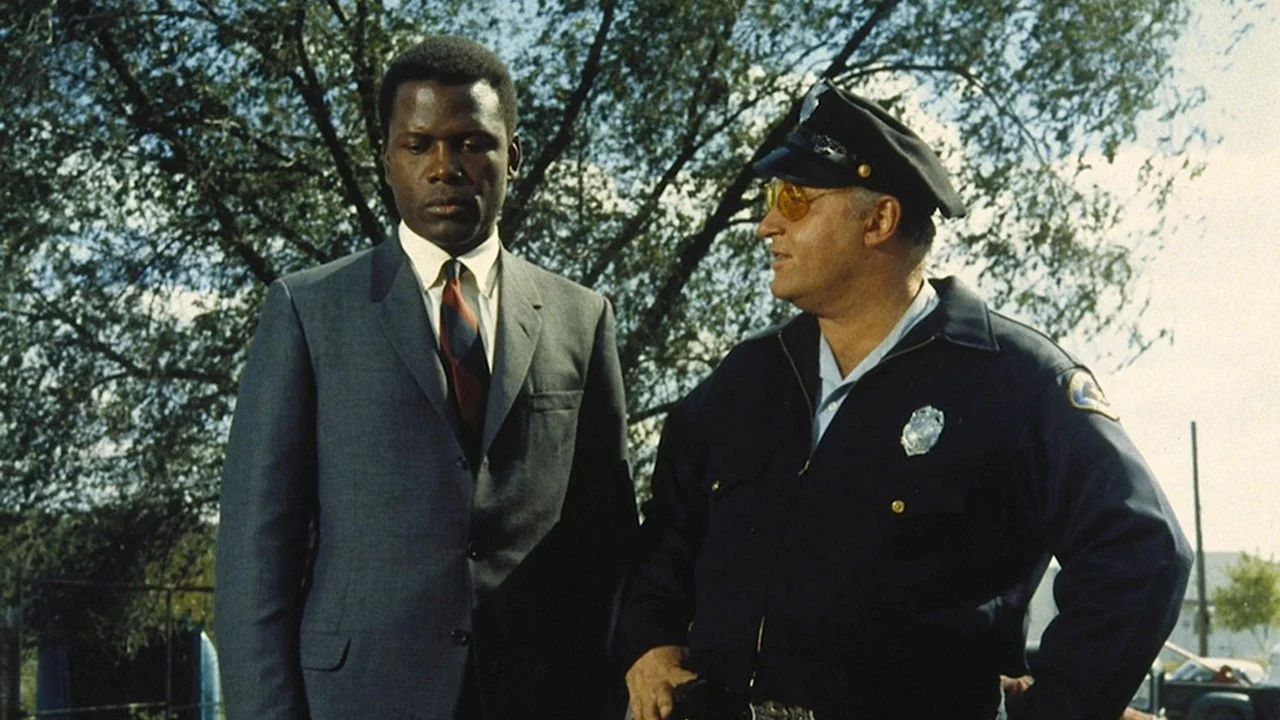Summary:
An African-American police detective is asked to assist in the investigation of a murder in Sparta, Mississippi, where the police chief and many of the officers are racist.
My Thoughts:
“In the Heat of The Night” was another one of those movies that, for one reason or another, I just never got around to seeing. As this is currently streaming on Amazon Prime, I decided to give it a shot. With five Oscars, including Best Picture, Best Actor (Rod Steiger, “On the Waterfront”), and Best Adapted Screenplay, I figured I couldn’t really go wrong.
As one might imagine, this film is pretty darn good.
“They call me Mister Tibbs!”
On a hot summer night in Mississippi, a body is found lying in the street, murdered. The police, desperate for clues, spread out and search the area. One of the detectives arrests an African-American man who has a great deal of money in his wallet. The man turns out to be Detective Virgil Tibbs (Sidney Poitier, “Guess Who’s Coming to Dinner”) from Philadelphia. Tibbs’ Police Chief in Philadelphia asks Tibbs if he’d be willing to assist in investigating the murder, and Tibbs agrees to help. Sparta’s police chief Gillespie (Steiger) is set in his racial biases, as are many of the other occupants of the town, and those racial tension become quite an obstacle for Virgil as he tries to assist in the murder case.
First and foremost, it’s a travesty that Poitier wasn’t even nominated for an Oscar for this film- I honestly think that’s what baffles me most about the awards this movie was given. Steiger absolutely earned his Oscar, don’t get me wrong, but how was Poitier completely forgotten?
Anyways, there’s a lot to like about this movie. The characters are really compelling, particularly Poitier. He navigates Sparta with a wary delicacy- he has to be ready to defend himself at a moments’ notice should the need arise. His relationship with Steiger’s character, Gillespie, is incredibly dynamic, and it’s warming to watch the racist Police Officer’s heart soften as he gets to know Virgil more. As one can imagine, the turn that their relationship takes follows a predictable pattern, but while the change of heart might be something we saw coming, the way Jewison approaches that change really brings the characters’ personalities to the forefront of the drama. At the beginning these characters are at each other’s throats, but as they work together and work through their differences, we see the complexities of both of their characters in full.
Let’s be honest, movies with themes surrounding racism always come down to one thing: Racism is Bad. That familiar theme (looking at you, “Green Book”) didn’t really bother me because the story was compelling enough, and the characters were well developed. I think one of my main problems with any sort of film that focuses on touchy issues is that they take the risk of coming off as overly sincere, or preachy, or sometimes they just come off as hokey. I hate to say it, because I know that it received a lot of praise this year, but I still think “BlacKkKlansman” was way overstated. “In the Heat of the Night” tackles sensitive issues with amazing tenderness. It doesn’t preach at us, it shows us how and why racism is wrong without constantly belittling the viewer.
It’s hard to entirely separate story from theme, but the whodunit and why mystery is a pretty fun story as well. There are a few twists and turns, and it’s a blast to watch Tibbs stay one or two steps ahead of the rest of the police force. He is, in a way, much like a Sherlock Holmes character, always noticing things that others wouldn’t have before (though, I suppose, at times all detectives draw comparisons to Sherlock Holmes).
My qualms with this movie are small. There are a few redneck side characters whose acting is a little silly, but for the most part I can ignore of forgive it that. Really, I enjoyed this movie I just didn’t love it. It’s a very decent story with some great acting,
Verdict:
I guess “In the Heat of the Night” was the first in a trilogy, followed by “They Call Me Mister Tibbs!” (1970), and then “The Organization” (1971). If I get around to watching those I’ll try to review them too. Criterion just released a new transfer of this film (they aren’t paying me to push their product, I swear), so there’s never been a better time to see this movie. Check it out, and let me know what you think!
Review Written By:





